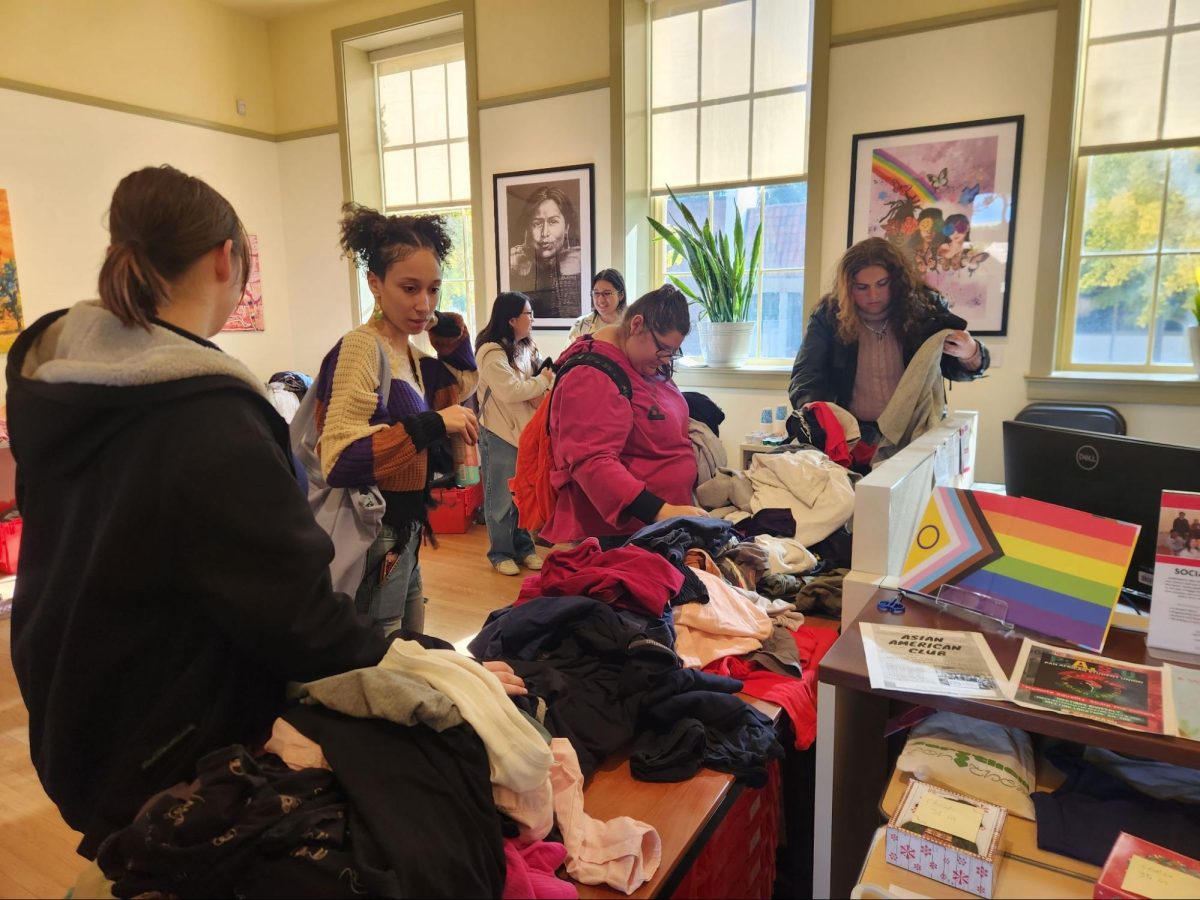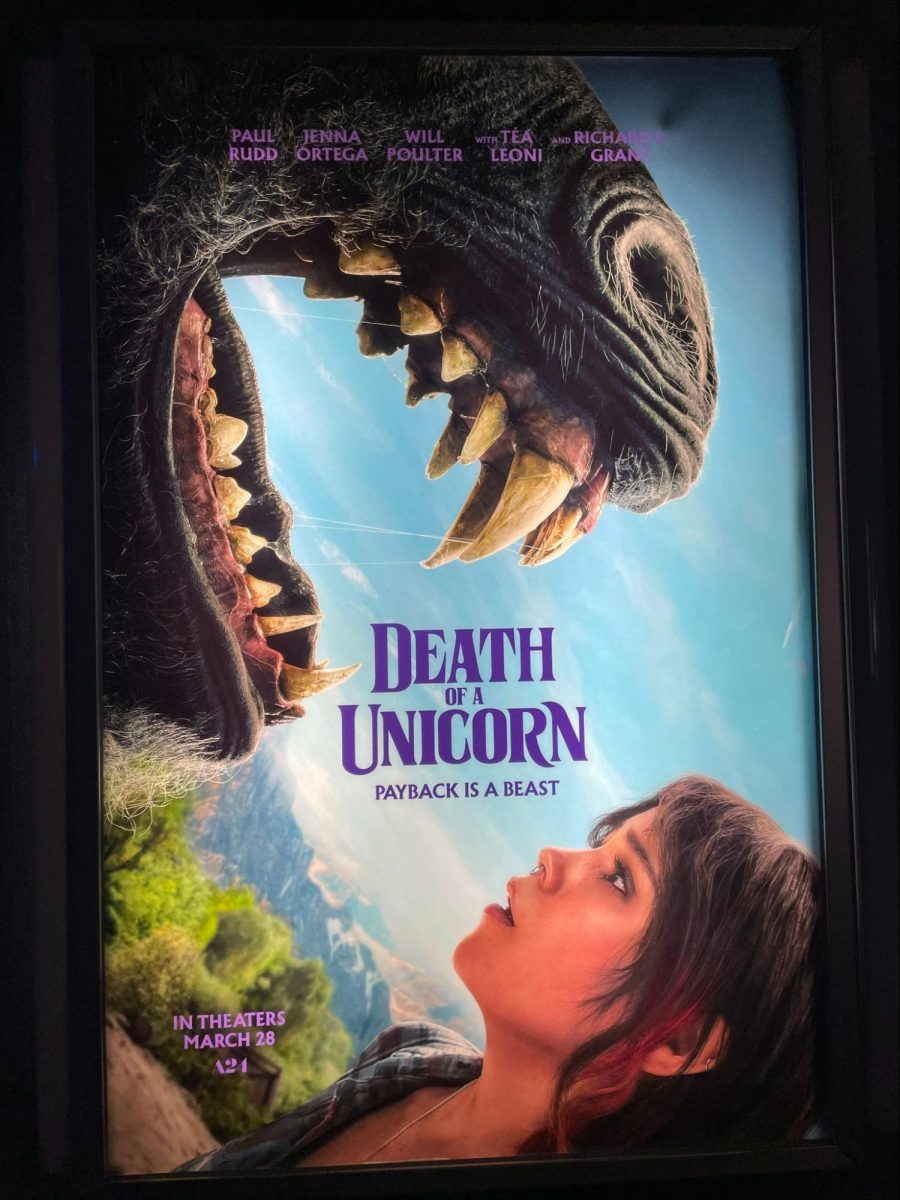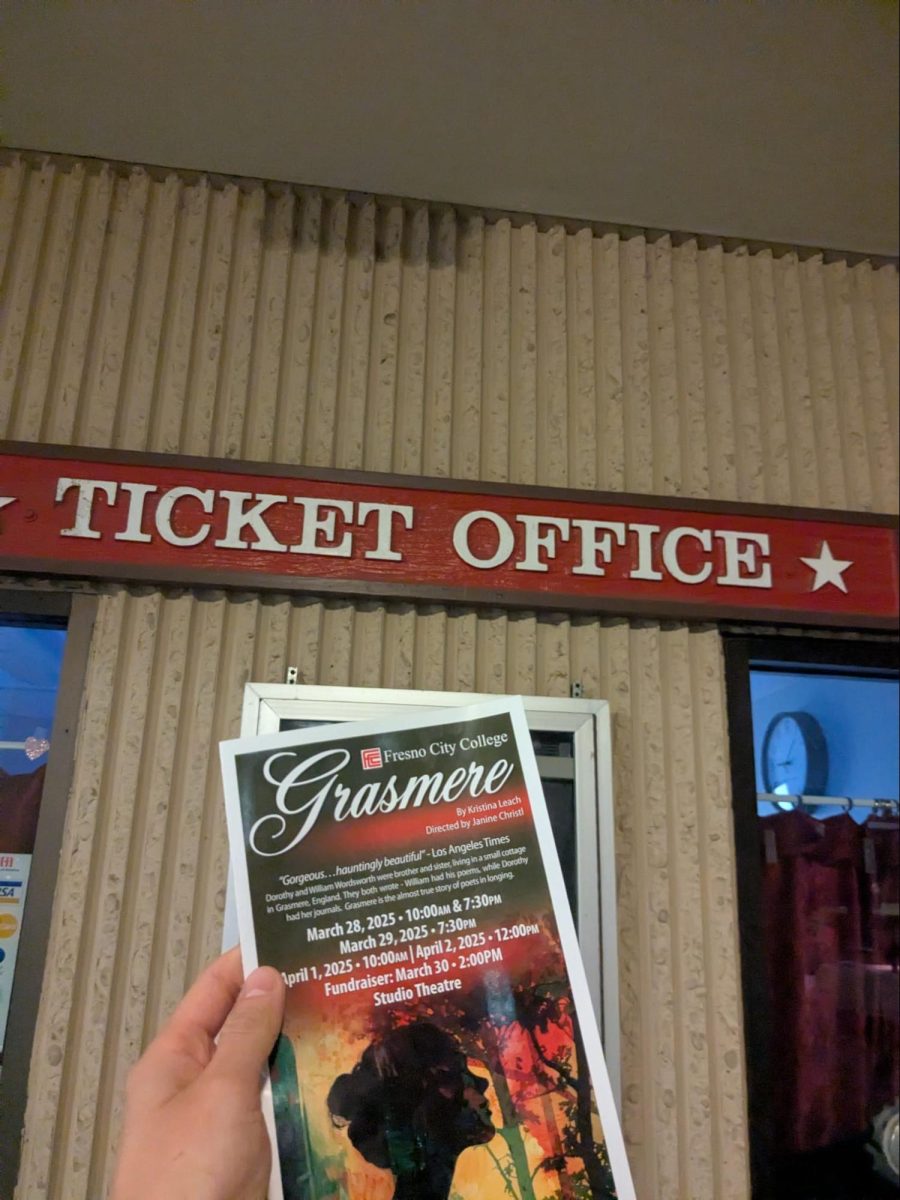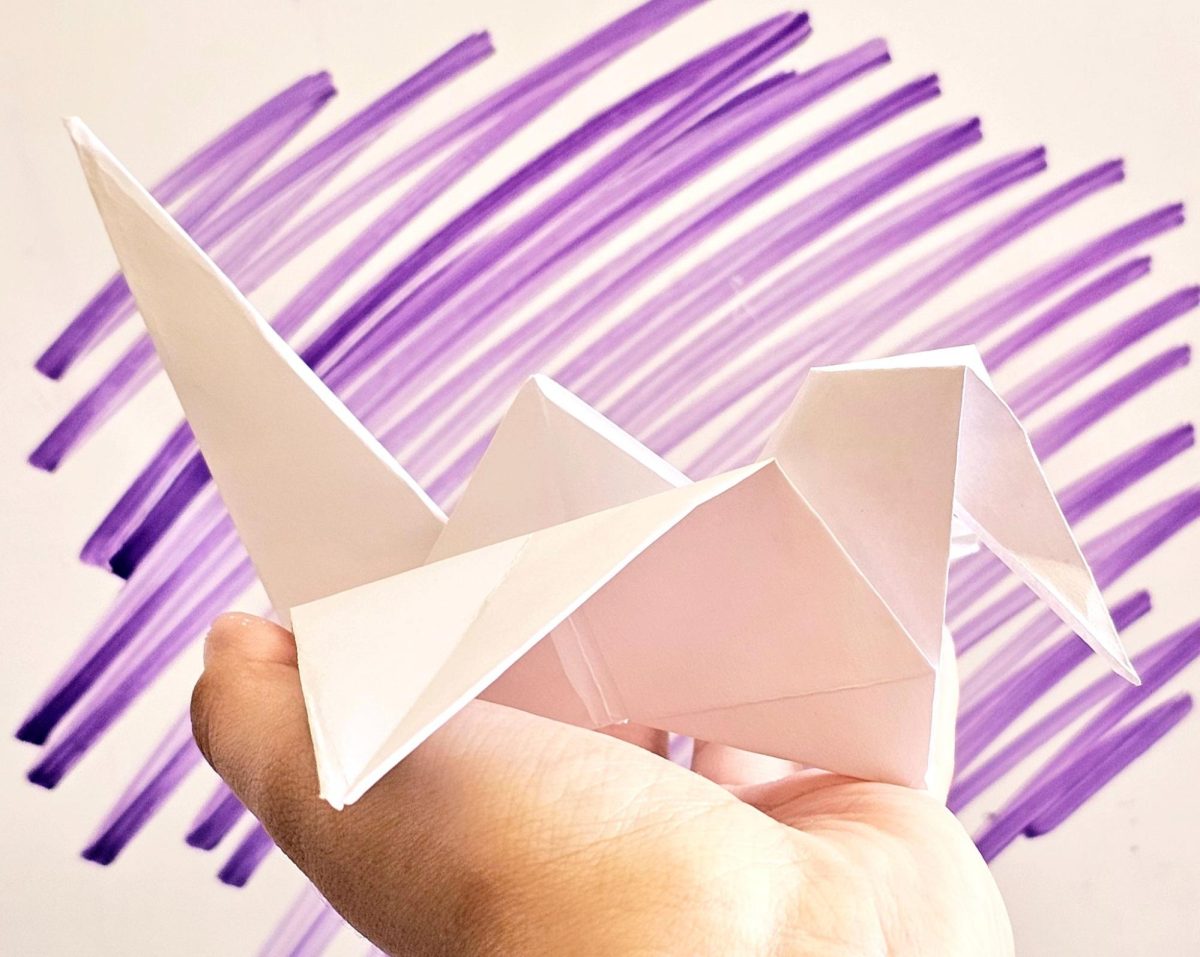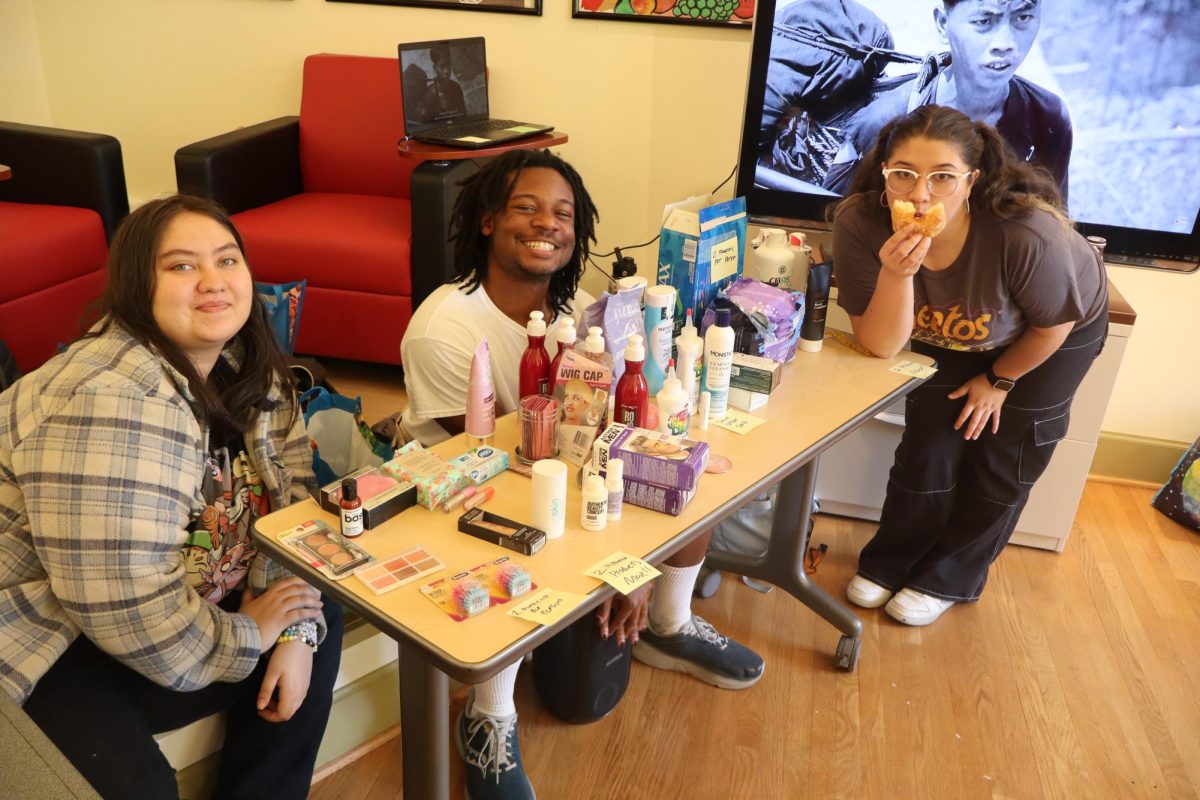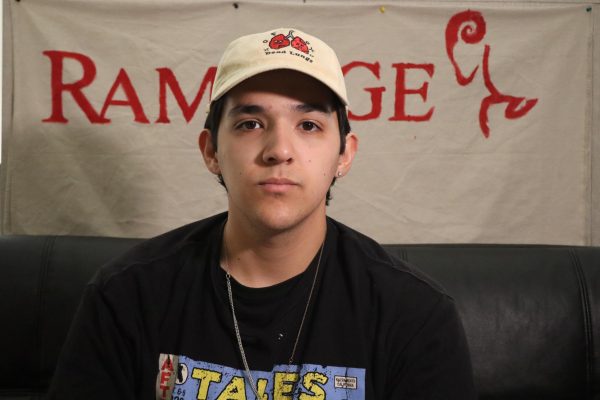The first ever student-run Queer Closet Exchange was held inside the Social Justice Center (OAB-139) at Fresno City College.
This collab with M.E.Ch.A and the Gender and Sexuality Association at FCC created a way for students to have easy access to gender affirming clothing and undergarments like packers and binders.
“Those are the important things. Clothes are great, but what goes underneath is just as important if not more important than what goes on top,” event co-founder and political science major, Makena Geil, said.
Hygienic items such as deodorant, makeup products, skin care and other body care products were also available.
An average of 10 to 12 people visited QCE during the busiest hours, according to Geil.
An estimated 400 clothing items were donated to the clothing drive by the community. Around 200 of those items were given away throughout the two day period, according to multiple event co-founders.
Any items that were not given away were donated to the unhoused in a Fresno community event called Pop-Up Care Village in collaboration with Blaqueer. Blaqueer is social justice organization based in Fresno that focuses on empowering Black, Indigenous and LGBTQ+ communities through various resources.
Pop-Up Care Village aims to provide unhoused individuals with essential hygiene products, mental healthcare connections, sex-positive supplies and more at the Fresno EOC LGBTQ+ Resource Center on Dec. 14.
QCE co-founder and FCC student Alexandra “Ali” Ruiz said they wanted to provide students with a safe space and allow them to be seen and welcome. They felt the diversity on the team combined with the efforts of everyone involved had meant a lot to Ruiz.
“As a person of color, just seeing that I have importance, and I have work that I can add into the community…it’s just really awesome,” Ruiz said.
Geil felt that herself and the team providing aid to the community and helping others feel comfortable in their own skin was the best thing she could possibly do.
“The community wants to give, so that other people can take. If the community is fortunate enough to give, the community also wants to make sure that people can do that,” Geil said.
Additionally, event co-founder and political science/philosophy major Cas Haugen felt that if others have the same drive and ideas to provide for the community in their own ways they should go for it.
“Fresno is very, very open to helping each other. Start talking to your neighbors too, just build that community,” Haugen said.
The idea for the event came within the students’ “Grassroots Democracy” class, or POLSCI-17. The new class at FCC pushed students to think of problems they have in their community and find a way to help solve it.
“Literally just two months ago this was a sticky note on our whiteboard, just trying to pick out what ideas we wanted to tackle,” GSA Vice President, event co-founder, and law, public policies and societies major, Maryana Flores, said.
The financial side of things is what drew her in, due to her upbringing and not being able to afford a lot of clothes.
“If I had some of these things growing up, then it would have been awesome,” Flores said. “So that’s what’s really special to me. So people have access to be able to experiment with their clothing, be able to experiment with their style, and do all kinds of stuff.”
None of the co-founders are taking the class next semester, but Flores believes that if QCE can be permanently tied to the GSA club, it can be a long lasting event within the Social Justice Center.
POLSCI-17 is led by political science instructor Nick Hernandez, who teaches what’s called “human centered design principles.” These principles are used to help the students better form their ideas and campaigns throughout most of the semester.
According to Hernandez, they have to be very specific in the problem they are trying to solve so that the project isn’t overwhelming.
“They use the rest of the semester to go out and implement the things they learn and hold events like the QCE,” Hernandez said.
To him, the idea is that projects that originate from the class surpass it.
“We want projects that are viable, that can happen, and we want them to be sort of set free, either on campus or in the community,” Hernandez said.
Regarding progress, Hernandez feels his students have been doing very well, mentioning the other two projects occurring within this semester. These include the planning to help create a botanical garden at FCC’s West Campus as well as an initiative to grant a universal stipend for students at FCC.
“They’re figuring out what works and what doesn’t work, and having to grapple with that, now that they’re implementing the projects that on paper, it looks great,” Hernandez said.
He said the projects teach important skills like independence and encouraging critical thinking. It gives students the ability to teach their peers while developing great organizational skills.
“I think those things are what students oftentimes are demanding of their courses. They want to talk about real world issues. They want to talk about things that affect them personally,” Hernandez said.
To him, the class gives his students the ability to address those issues on their own and builds the skills to do so.

